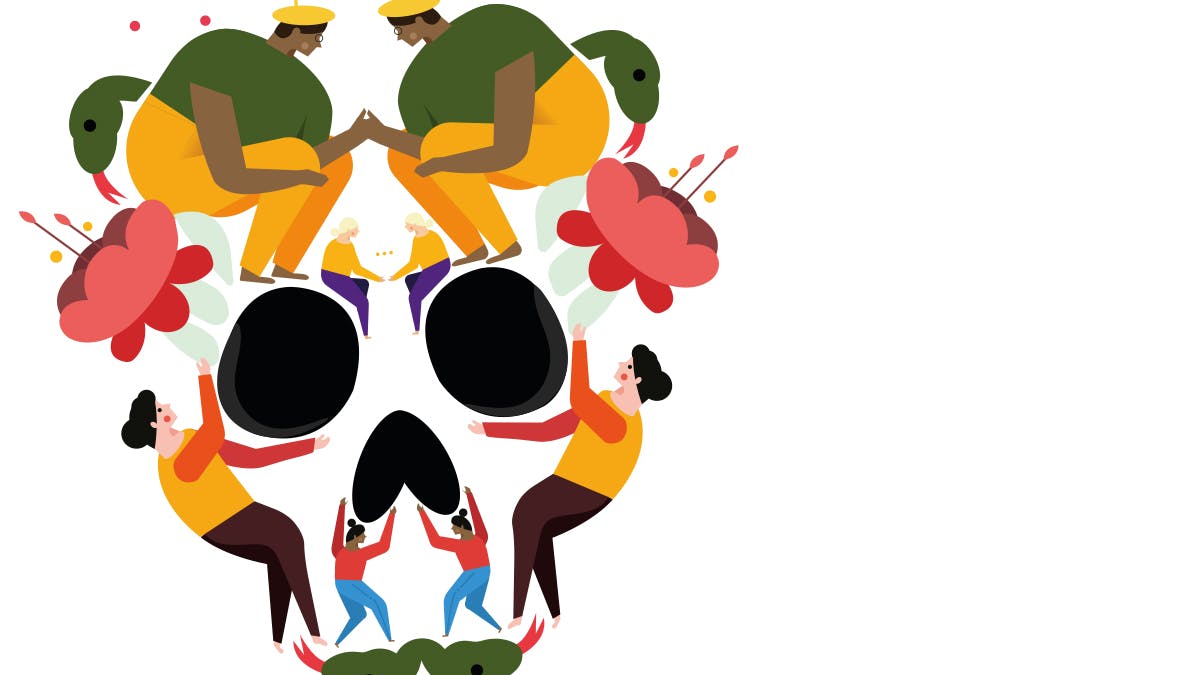
With friends like these… you need to be careful, as a poisonous relationship can have a serious impact on your mental and physical health. It’s time to detox your diary
We all have that one friend who brings out the best in us. That one mate who gives us the confidence to take on the world and, when we don’t have any self-belief, shouts: “You can do this!”
When things get tough, there’s nothing better than showing up at your best friend’s house unannounced, knowing that they’ll drop everything to make you a fresh cuppa and help you get back on top of things.

Friendships like these can have a positive impact on your mental and physical health, with an Australian study showing that participants with solid friend groups were 22% more likely to live longer.
Additionally, a report from the Office for National Statistics in 2014 claimed that, even from a young age, children have higher levels of wellbeing when they have good social relationships with family and friends.
Even as an adult your friends can have an ongoing impact on your health. A study conducted by the Department of Epidemiology and Public Health at University College London reported that “having a well-integrated friendship network is a source of psychological wellbeing among middle-aged adults”. It’s suggested that people who are more socially integrated can even live longer and are less likely to experience specific disease outcomes such as heart attacks and upper respiratory illnesses.
It’s worth addressing the fact then, that toxic relationships need to be dealt with in order to maintain a healthy, well-balanced lifestyle. But how do we do that?
1. Get some space
Being constantly in someone else’s pocket is bound to give you a heightened sense of anxiety. So if you think you might be part of a toxic friendship, you should start by creating some space to see if that helps you relax.
Every relationship has its own unique dynamic of course, but it can be hard to separate yourself from someone who is displaying harmful behaviour if you don’t recognise it in the first place.
Talk to someone you trust — ideally someone who doesn’t know your friend — and ask them to give you an impartial opinion on the situation as you try to tackle the problem.

2. Identify the problem
According to clinical psychologist Dr Susan Heitler, there are several signs that a friendship may be toxic – including being in competition with each other, feeling like you’re listening to their problems but never able to share your own, and constantly receiving criticism in an unkind manner.
Your friend may even bring out the worst in you, and you could find yourself saying and doing things you later regret because you felt manipulated or pressured into acting in a certain way, to meet someone else’s twisted expectations.
Once you identify the problem, you can start to consider the best way to address it without causing too much drama.
3. Set boundaries
If you feel uncomfortable or angry about how you’re being treated, try setting your own boundaries.
For example, maybe your friend makes comments about your clothes, which make you feel self-conscious. Make a deal with yourself that the next time this happens you’ll calmly address it instead of ignoring it.

If your friend insists on putting you in situations where you feel unhappy, set a boundary that you’ll stay for 10 minutes, but then it’s OK to leave.
You don’t need to answer every single message or call from them, so setting a rule that you don’t check your phone after a certain time is a good way to set a precedent that you’re not on call 24/7.
Remember, you’re in control and no one else should be making decisions for you.
4. Create a support network
If you still want to stay in contact with your friend, try to minimise the amount of time you spend with them so that they don’t continue to drain you, and have a knock-on effect on other aspects of your life.
A good way to help balance this out is to ensure you spend time with the friends who do make you feel good, as this will help recharge the positive aspects of your personality.
Make these people a priority in your life, give them the time they deserve, and you’ll reap the benefits from an amazing network of supportive, genuine friends who lift you up instead of bringing you down.

